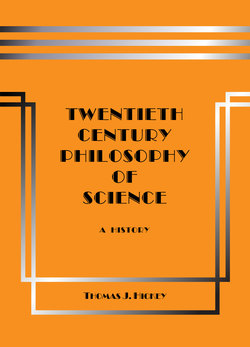Читать книгу Twentieth-Century Philosophy of Science: A History (Third Edition) - Thomas J. Hickey - Страница 99
На сайте Литреса книга снята с продажи.
4.19 Empirical Underdetermination
ОглавлениеVagueness and measurement error are manifestations of empirical underdetermination that permit scientific pluralism.
Empirical underdetermination can be reduced indefinitely but never completely eliminated.
Empirical tests are conclusive only when empirical underdetermination is small relative to the effect predicted in a test.
The empirical underdetermination of language may make empirical criteria incapable of producing decisive theory-testing outcomes. Two manifestations of empirical underdetermination are conceptual vagueness and measurement error. All concepts have vagueness that can be reduced indefinitely but can never be eliminated completely. Mathematically expressed theories use measurement data that always contain measurement inaccuracy. Measurement error can be reduced indefinitely but never eliminated completely.
Scientists prefer measurements and mathematically expressed theories, because they can measure the amount of prediction error in the theory, when the theory is tested. But separating measurement error from a theory’s prediction error can be problematic. Repeated careful execution of the measurement procedure, if the test is repeatable, enables statistical estimation of the degree or range of measurement error. A test is conclusive to the extent that the estimated measurement error is manifestly small relative to the produced effect in the test. But as in economics, repeated measurement is not always possible.
